
The Minister for Roads and Highways, Kwame Governs Agbodza has openly admitted that political interference, poor project supervision and flawed decision-making by those in power have led to catastrophic cost overruns in major road projects, including the Kumasi–Accra bypasses, with variations ballooning from GH¢1.9 billion to GH¢3.4 billion.

Appearing before the Public Accounts Committee (PAC) on Wednesday, October 29, 2025 the Minister took full responsibility on behalf of the political class for the financial mismanagement and technical lapses that have marred some of Ghana’s most significant infrastructure undertakings.
The Minister declared, “We, the political class, are at fault.” He explained that many of the contracts awarded were politically influenced, with technical experts sidelined and decisions made without due diligence or respect for established engineering standards.
Kumasi–Accra bypass project
According to him, the Kumasi–Accra bypass project serves as a textbook example of how politics can derail sound engineering judgment and lead to monumental financial waste.
He cited how a project initially valued at GH¢1.9 billion had ballooned to GH¢3.4 billion due to a combination of poor planning, interference, and inadequate supervision.
“If a contract is GH¢1.9 billion and the variation is GH¢3.4 billion, something catastrophic might have gone wrong,” he confessed, adding “As a minister, I will not hide behind any excuses.
“I will say it as it is — the mistakes were made by us, the political leaders, and we must accept responsibility.”
Throughout his submission, the Minister repeatedly stressed that the core of the problem was political interference — a pattern that had compromised transparency and accountability in road project implementation across the country.
He lamented how the practice of altering project designs midstream for political reasons often left contractors confused, engineers helpless and the taxpayer burdened with unplanned expenses.
“Sometimes, you see a project started under one government, then another comes in and wants to change the design, the alignment, or even the contractor. By the time all the changes are made, the cost has tripled. This is not sustainable,” he said.
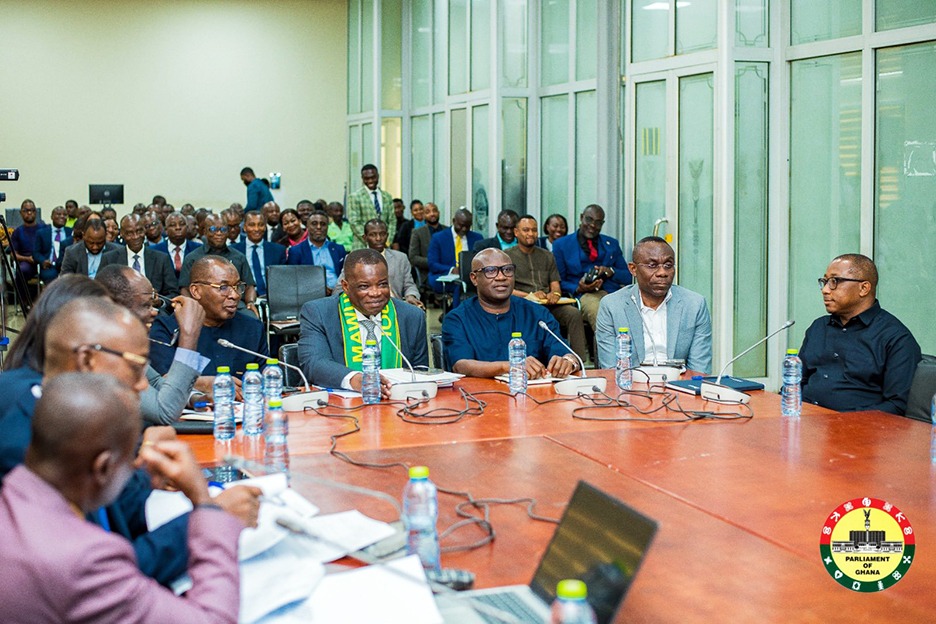
The Minister expressed frustration that professionals within the Ministry often find themselves sidelined in the face of political directives.
He noted that some key technical staff, despite their experience and expertise, are forced to implement politically motivated instructions that compromise the quality and cost-efficiency of projects.
“We have very competent engineers in this country, but they are sometimes not allowed to do their work because of politics. We must change this culture if we are serious about value for money,” he advised.
The Minister detailed how poor supervision and weak institutional oversight compounded the cost escalation problem.
He revealed that many of the variations that ballooned project costs were approved without sufficient scrutiny or justification.
“In some cases, variation orders are processed without proper documentation or technical backing. It becomes difficult to even trace who approved what and why. When you go back to audit the project, you find layers of approvals that make no sense, yet money has been paid.”
He admitted that some of the contracts were deliberately rushed to meet political timelines rather than technical requirements.
“Sometimes we want to cut sods quickly to show progress. In doing so, we sign contracts without designs being fully completed. Then later, we come back to make changes — and those changes come with cost implications,” he stated.
The Minister underscored that this political urgency and the desire to impress electorates, had long-term consequences that Ghana continues to pay for.
“When you start a project before completing the design, you are already setting yourself up for variations. Every change becomes a cost, and before you know it, the budget has doubled or tripled.
“If we do not confront these truths, we will keep repeating the same mistakes. We, the political class, must learn to give space to the professionals to do their work.”
He said his Ministry was now taking steps to correct the systemic inefficiencies that have plagued the sector, including revising contract approval processes, strengthening supervision and insisting on complete designs before sod-cutting ceremonies.
“We have started implementing reforms to ensure that every road project has full design drawings, proper environmental assessments, and a financing plan before we start. We will no longer allow the culture of starting first and thinking later.”
Despite his resolve to fix the system, the Minister maintained a tone of accountability throughout his testimony. “It is easy to blame contractors or engineers, but let’s face it, we are the ones who give the directives. If those directives are wrong, we cannot blame anyone else,” he said.
He called for an attitudinal shift within both the political and technical arms of government. “Our professionals must also stand their ground when they know something is wrong.
“Sometimes, they are intimidated by politics, but they must remember that their first loyalty is to the nation,” he emphasised.
Addressing the GH¢3.4 billion variation, the Minister said the figure speaks for itself and should be a wake-up call for every policymaker.
“When a variation is almost twice the value of the original contract that is not normal, that is catastrophic. We need to ask ourselves how we got there and ensure it never happens again.”
He added that such massive cost variations often undermine public trust and lead to the perception that road projects are conduits for corruption, an image he said he is determined to change.
“The people out there think every road project is an avenue for politicians and contractors to enrich themselves. That perception exists because of how we manage these contracts,” he admitted, saying “We need to rebuild trust through transparency and professionalism.”
The Minister pledged to collaborate closely with Parliament and the Auditor-General to strengthen oversight in the roads sector.
“I welcome the scrutiny. We need more of it. It keeps us on our toes and ensures that public funds are used properly,” he told the Committee.
He also appealed for bipartisan support to insulate technical decisions from political interference, arguing that sustainable infrastructure development cannot thrive in a partisan environment. “Roads do not have political colours,” he said. “Whether a road is built by NDC or NPP, it serves Ghanaians. We must stop politicising development.”

Commenting on overloading of trucks, Mr. Agboza lamented that despite several interventions, the country continues to grapple with rampant overloading of trucks, particularly those transporting goods between major highways such as Tema, Kumasi and Tamale.
He said, “We have weighbridges, we have enforcement officers, we have regulations, but somehow people still find ways to bypass the system.
“They overload because they want to make more trips with fewer trucks, but at the end of the day, the cost to the nation is enormous.”
According to him, the continuous overloading of heavy trucks shortens the lifespan of newly constructed roads, making it difficult for the government to sustain its road improvement programmes.
“A road that should last 15 years will start failing within three years if it’s constantly subjected to overloaded vehicles.
“When that happens, the same taxpayers who paid for the construction now have to pay again for repairs. That is money that could have gone into schools, hospitals, or drainage.”
A Call for Stricter Enforcement
The Minister revealed that the Ministry, in collaboration with the Ghana Highway Authority and the Police Service, is reviewing the national axle load enforcement strategy to tighten controls and impose stiffer sanctions on offenders.
He expressed disappointment that enforcement officers sometimes compromise the system for personal gain.
“Let’s be honest, sometimes the problem is not just the truck drivers. Some of our enforcement people take something small and allow overloaded trucks to pass. That’s how we destroy our own roads,” he noted candidly.
He insisted that the time had come for collective discipline. “If we all decide to do the right thing, our roads will last longer. Enforcement officers must be firm, and drivers must obey the law. It’s as simple as that.”
Axle Load Control and the Human Factor
The Minister emphasised that axle load control remains one of the most critical measures for preserving road quality, but its success depends largely on the integrity of those managing the system.
He revealed that his Ministry had begun monitoring activities at weigh stations across the country to ensure that enforcement is not compromised.
“We are putting in place digital monitoring systems that record every truck that passes through the weighbridge. Once the system is automated, there will be no room for manipulation. The data will be available in real time,” he said.
Mr. Agboza further explained that most of the road failures observed on major highways could be traced directly to overloading and poor maintenance culture.
He said “If you drive from Tema to Paga, you will see that the same pattern repeats itself. The sections with the heaviest trucks are the ones that fail fastest. This is not about design, it’s about abuse.”
Cost Implications for Government
Responding to questions from committee members, the Minister provided insight into the financial burden that road damage imposes on the state.
“When a contractor builds a road for GH¢200 million and it fails within a few years because of overloading, you may end up spending another GH¢100 million on rehabilitation. Multiply that by the number of highways across the country and you will see how much we are losing.”
He added that the cumulative effect of such losses threatens Ghana’s infrastructure investment strategy. “Our roads are some of the most expensive assets the nation has. When we lose them prematurely, we lose not only money, but productivity.
“Goods take longer to move, vehicles consume more fuel, and accidents increase. It’s a vicious cycle.”
Road Safety
The Minister also linked overloading to rising road accidents, particularly those involving articulated trucks.
He warned that when trucks exceed their maximum load limits, braking systems and tires become less effective, endangering the lives of both drivers and passengers.
“A truck that should carry 40 tonnes, but is loaded with 60 tonnes cannot stop safely in an emergency.
“When such a truck descends a hill or navigates a curve, it becomes a moving danger to everyone on the road.”
He called on transport unions and haulage associations to take greater responsibility for ensuring compliance among their members.
Need for Policy and Behavioural Change
The Minister argued that overloading was as much a behavioural issue as it is a regulatory one. He stressed that until transport operators and drivers change their attitudes, no amount of enforcement will completely solve the problem.
“We need to educate people that overloading does not benefit anyone in the long run. The profit you make today will vanish tomorrow when your vehicle breaks down or when the roads become impassable.”
He revealed that the Ministry was developing a comprehensive public awareness campaign to highlight the economic and safety consequences of overloading.
“We are working with the National Road Safety Authority and the media to intensify. People must understand that protecting our roads is everyone’s business.”
Public Support for Sustainable Roads
He appealed for public cooperation and civic responsibility, urging citizens to report overloaded trucks and to hold drivers accountable.
“We cannot have enforcement officers everywhere. Sometimes ordinary citizens can help by reporting offenders or taking pictures when they see overloaded vehicles damaging the roads,” he said.
He further disclosed plans to integrate citizen reporting into the Ministry’s new road management digital platform.
“We are building a system where people can easily submit reports, and the data will go straight to the Ministry. Once verified, action will be taken immediately,” he announced.
Agboza added that road infrastructure was a shared national investment that must be protected through responsible use and firm governance.
The Minister reiterated that the Ministry of Roads and Highways will continue to prioritize road safety, durability, and cost-efficiency, but meaningful progress depends on collective change.
“We are doing our part as a Ministry, we are reviewing contracts, we are tightening supervision, and we are reforming enforcement.
“But we need every Ghanaian to play their part. The driver, the transporter, the enforcement officer, and even the passenger all have a role.”
For more news, join The Chronicle Newspaper channel on WhatsApp: https://whatsapp.com/channel/0029VbBSs55E50UqNPvSOm2z
The post Cost Of Accra-Kumasi By-Passes Balloons …From GH¢1.9bn to GH¢3.4bn -Agbodza appeared first on The Ghanaian Chronicle.
Read Full Story
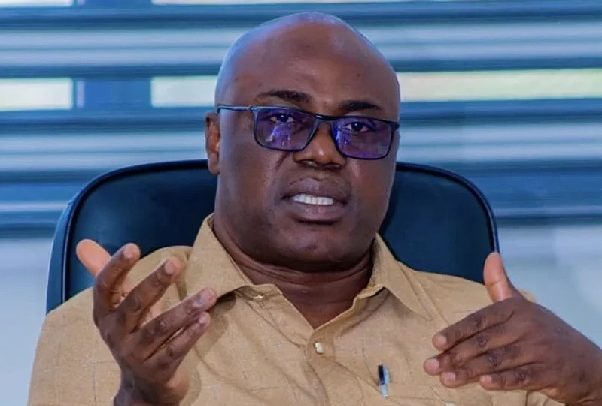






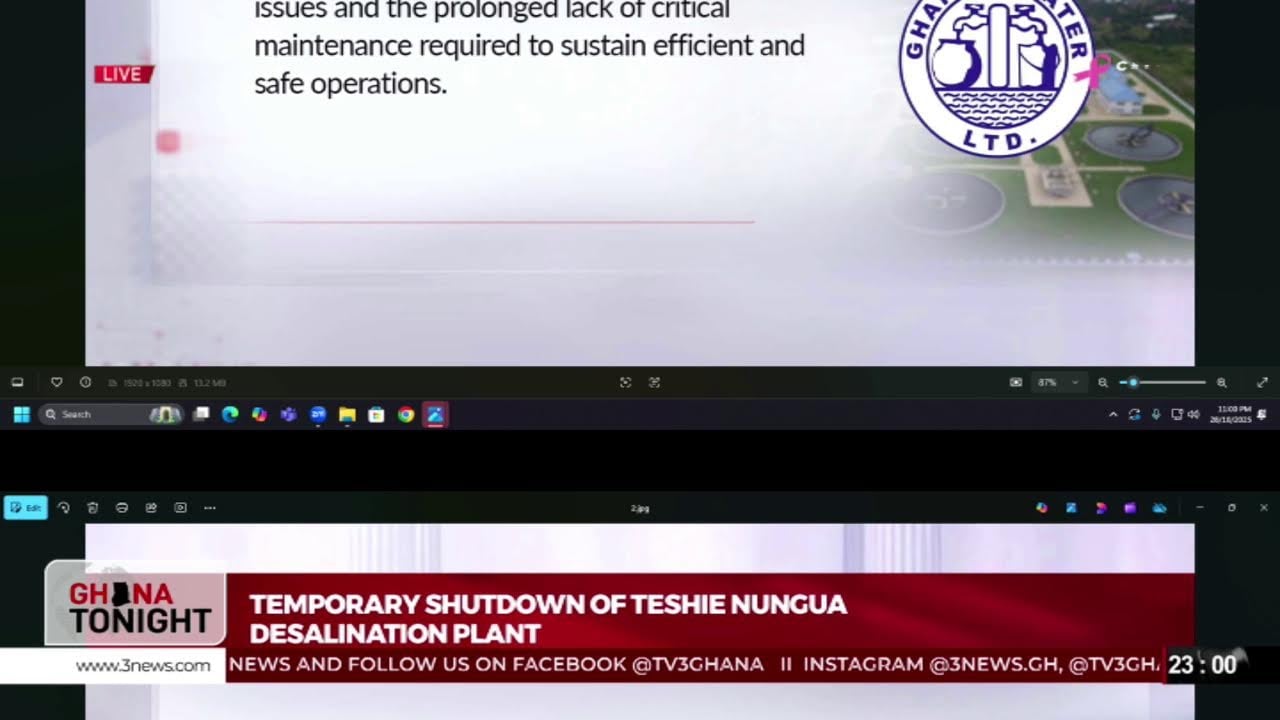



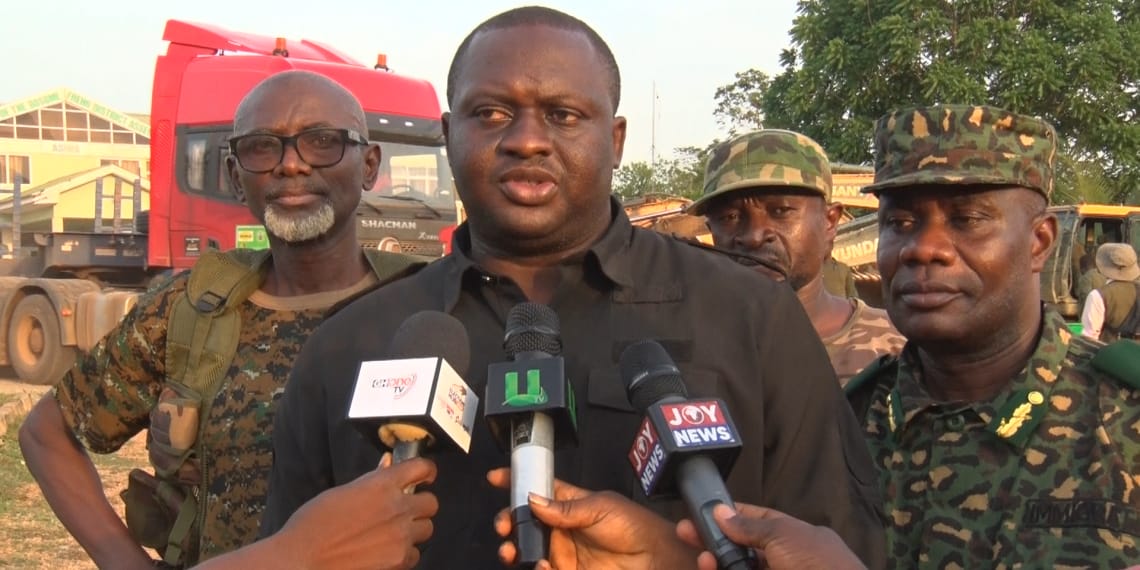

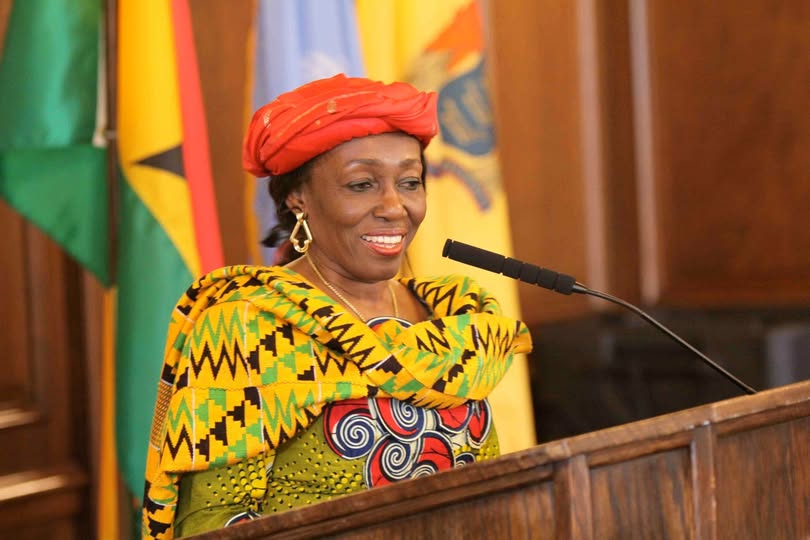
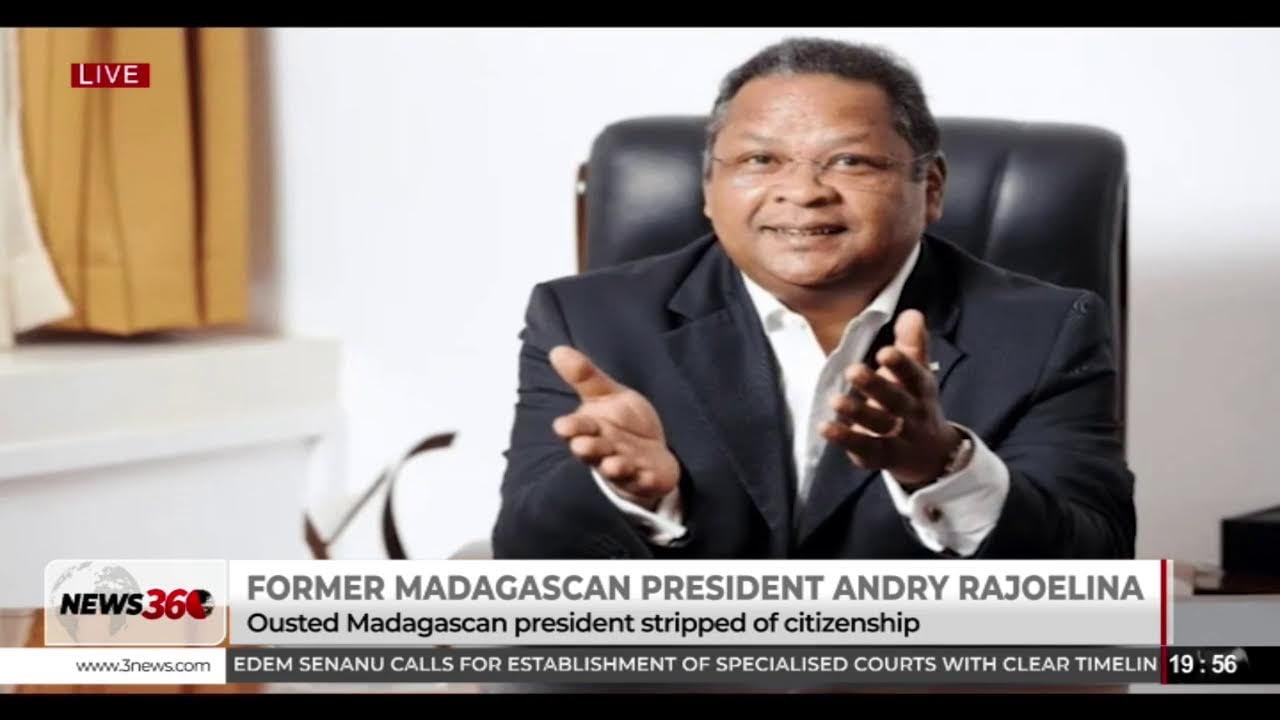









Facebook
Twitter
Pinterest
Instagram
Google+
YouTube
LinkedIn
RSS